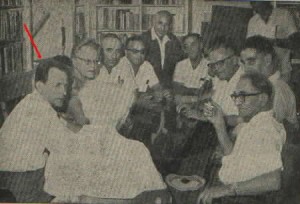For those who have missed it, a impressive debate on the legality of West Bank settlements has been in progress for the past week between several of South Jerusalem’s readers. To find it, look in the comment section of my post, The Paper Trail: Settlement Land Theft. The dueling writers have remained civil – no small thing in blogland. Meanwhile, they’ve provided a thoughtful, articulate and footnoted overview for anyone interested in this issue.
That said, it’s an unequal battle. Beginning at comment No. 14, David (with some assists from Fiddler) lays out the basics of international law on occupation and the prohibition of settlement. On the other hand, commentator aliyah06 (with some assists by others) summarizes the arguments that have been used by defenders of settlement.
Sorry, aliyah06 et al. Outside of the pro-settlement echo chamber, these positions are considered quirky. While the Israeli government has used them for PR purposes abroad, it takes entirely different positions when arguing real legal cases before the Israeli Supreme Court. I’m sorry. The government has treated you, and others who quote its PR arguments, as useful idiots.
Here are some key points for understanding the illegality of settlement:






